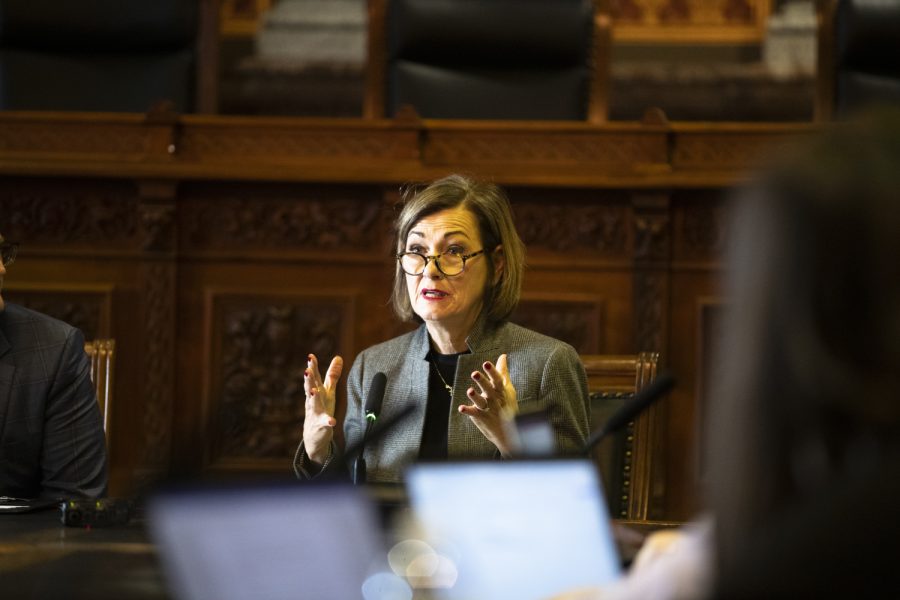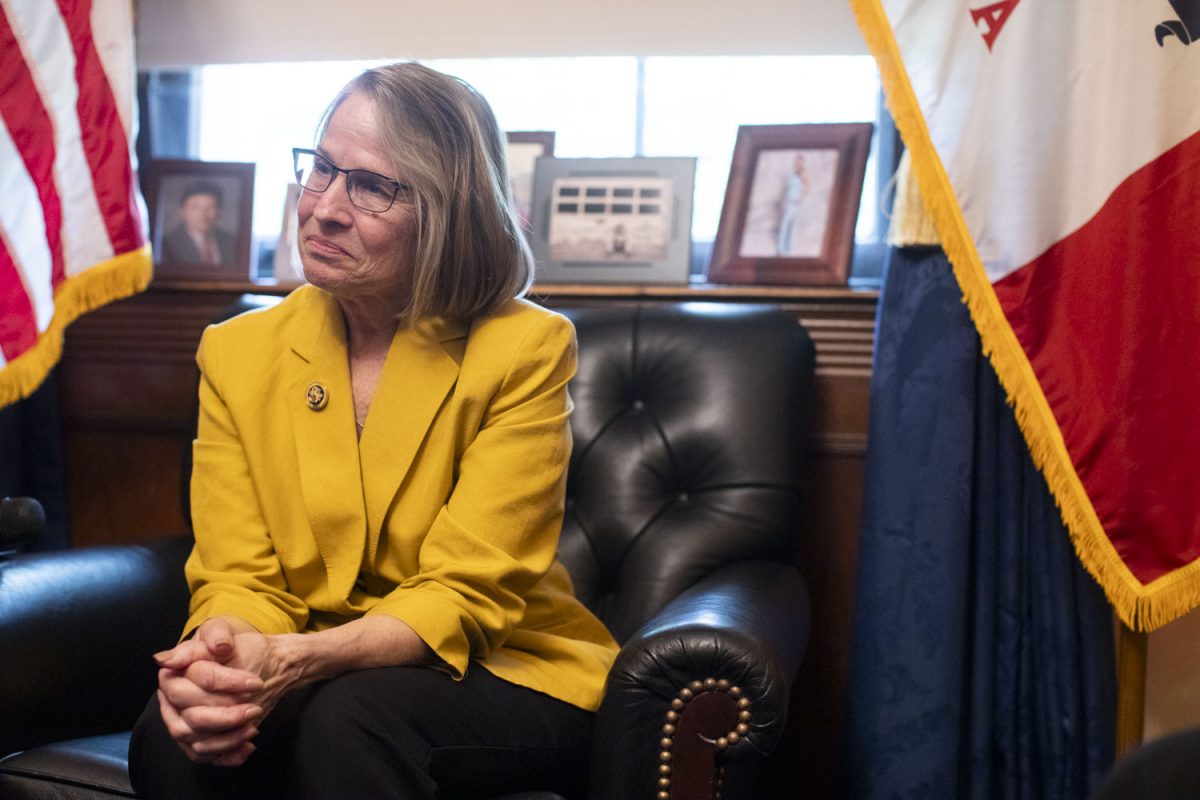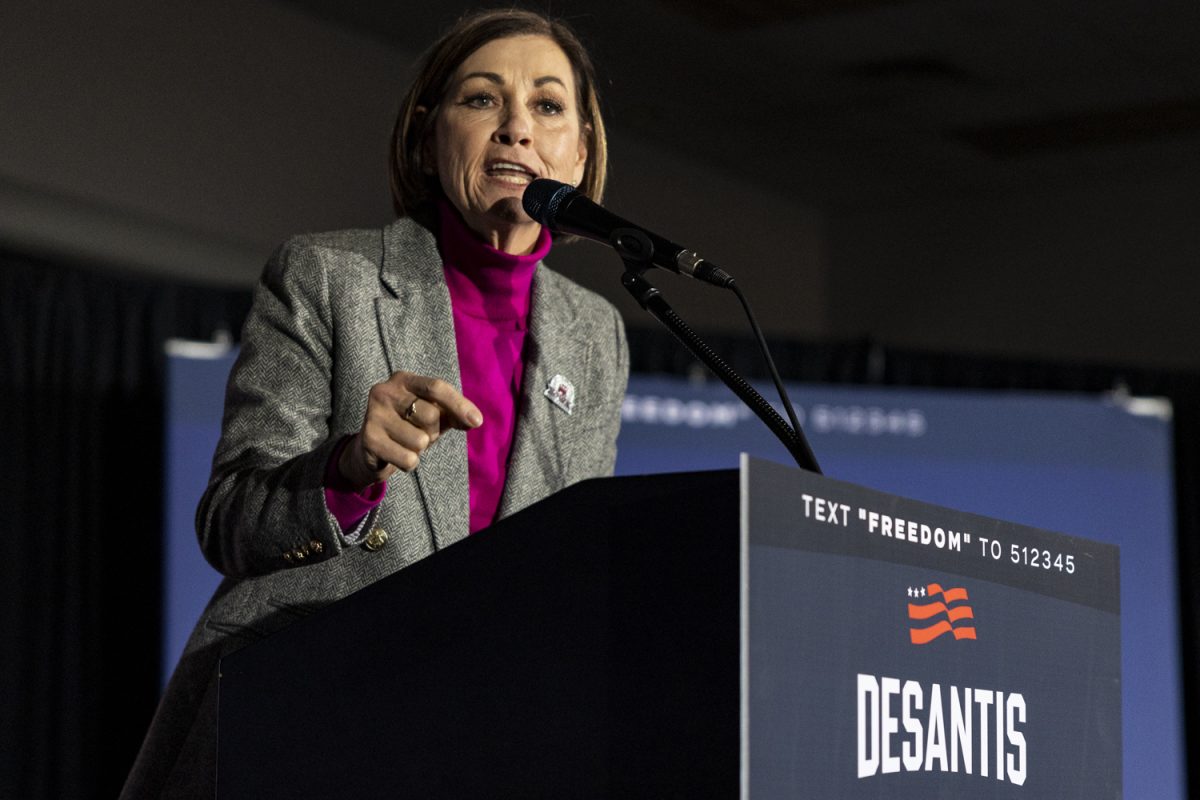After a lengthy heated floor debate, the Iowa Senate passed a heavily amended version of House Republicans’ reforms on Iowa’s nine Area Education Agencies.
Reforming AEAs is the biggest task set forth by Iowa Gov. Kim Reynolds for Iowa lawmakers this session. The governor introduced her proposal early in the session and was quickly met with swift opposition that ignored political leanings. The proposal has become the most contentious reform lawmakers are considering this session.
The House previously scrapped the governor’s proposal, opting for their own version House File 2612, since adopted by the Senate. The House version removed Reynolds’ key priority to allow schools to decide whether or not to use AEAs for special education by requiring schools to contract with AEAs for special education services.
Senate Republicans introduced a strike-after amendment on Monday that rewrites the existing bill and instead allows school districts to contract with their AEA, use special education funding internally, or contract with a third party to provide special education services.
A heavily amended House version of Reynolds’ plan to reform the agencies in the state was adopted, amended further, and passed through the Senate after extensive opposition from Senate Democrats.
The Senate’s original version of the bill kept the majority of the governor’s proposal, which they withdrew after passing the House’s version of the reforms. The original Senate bill would largely keep the governor’s reforms and allot AEAs all federal special education funding while giving state funding earmarked for special education directly to school districts.
The amended bill passed the Senate, 28-22, with most Republicans in support with six joining all Democrats in opposition. Sens. Jeff Taylor, R-Sioux Center; Mark Lofgren, R-Muscatine; Mike Klimesh, R-Spillville; Sandy Salmon, R-Janesville; Waylon Brown, R-Osage; and Charlie McClintock, R-Alburnett, joined the Democrats in opposition to the bill.
The bill now heads to the House for their consideration of the Senate amendments.
Reynolds applauded the passage of the bill and said she will now “look forward” to seeing what House and Senate lawmakers compromise on.
“I now look forward to working with the House and Senate to reach a compromise that will bring transparency, accountability, and consistency to the AEA system while most importantly improving outcomes for students with disabilities,” Reynolds said in a news release Monday night. “At the same time, we must recognize the important role of teachers in the classroom by increasing minimum salaries for both starting and experienced teachers.”
Republicans say reforms are needed to stop federal intervention
Sen. Lynn Evans, R-Aurelia, who led the bill, stated that reforming AEAs would avoid federal intervention in Iowa’s special education system.
“Schools deserve to have more transparency and accountability for how their special education funding is spent,” Evans said. “This bill provides them with more local control to base their spending on the unique needs of students in their districts.”
Annual reports from the U.S. Department of Education determined Iowa needed assistance for special education for the past two years, according to letters sent to the Iowa Department of Education in 2022 and 2023.
However, Evans highlighted that “AEAs need to be held into compliance by somebody other than themselves.”
“Schools deserve to have more transparency and accountability for how their special education funding is spent,” Evans said. “This bill provides them with more local control to base their spending on the unique needs of students in their districts.”
Lynn said that under the bill, Iowa school boards can still opt to participate in AEAs by contracting with an AEA to provide services internally or by means determined locally.
“The people who are on the ground working for AEAs, they do God’s work,” Lynn said. “They’re great people, their hearts are in the right places, but they’re hampered and they’re handcuffed by a system that has been in need of reform for many years.”
Democrats say to slow down on massive reforms
Democrats spoke out against the analysis of Iowa’s AEA programs that influenced Reynolds’ original reformation proposal, citing Guidehouse’s consultants as faulty, incomplete, and unrepresentative of the state’s AEA system.
Democrats were upset with the rushed nature of the reform and claimed there was not much consolation from Reynolds with Iowa families or AEA programs.
“Iowans do not want this bill,” Sen. Janice Weiner, D-Iowa City, said. “The governor did not meet with Iowans before introducing this bill. She did not meet with public schools, she did not meet with private schools — she didn’t meet with stakeholders. She paid good money to an out-of-state firm to write a report that was consulted with no one here. Money that would have been better invested in our schools. From my perspective, that’s not how to run a government.”
Sen. Molly Donahue, D-Cedar Rapids, said the bill is unnecessary and unwanted. Donahue said there was no reason for the bill because it was not desired by Iowas.
She cited a Des Moines Register/Mediacom Iowa poll which revealed that the majority of Iowans possess a favorable view of AEAs and the program has a higher approval rating than Iowa’s governor.
When asked about their opinions toward Iowa’s AEAs, 56 percent of Iowans viewed them favorably and 20 percent held an unfavorable opinion.
Donahue also said Iowa’s AEAs have recertifications done on a consistent timeline, receive “glowing recommendations” from the Department of Education, and remain the envy of many surrounding states.
“This bill really is the cart before the horse because we haven’t even identified the areas that we truly need to be fixed or how to fix them before changing the entire system,” Donahue said during floor debate.
Senate Minority Leader Pam Jochum, D-Dubuque, gave an impassioned argument on the floor against the bill, discussing her personal experience with AEAs and their importance for Iowa families.
“I care about every child in this state and I would hope to god you would too because what you are doing today is creating more instability, more uncertainty, and this system will collapse,” Jochum said. “Families will remember in November who stood up for their children.”











